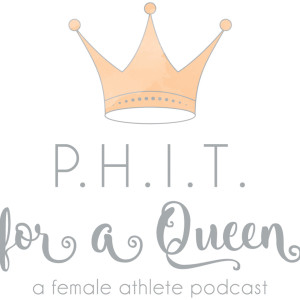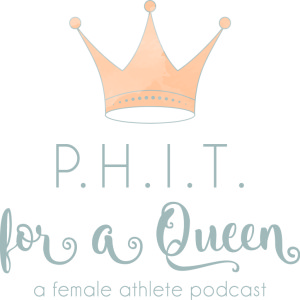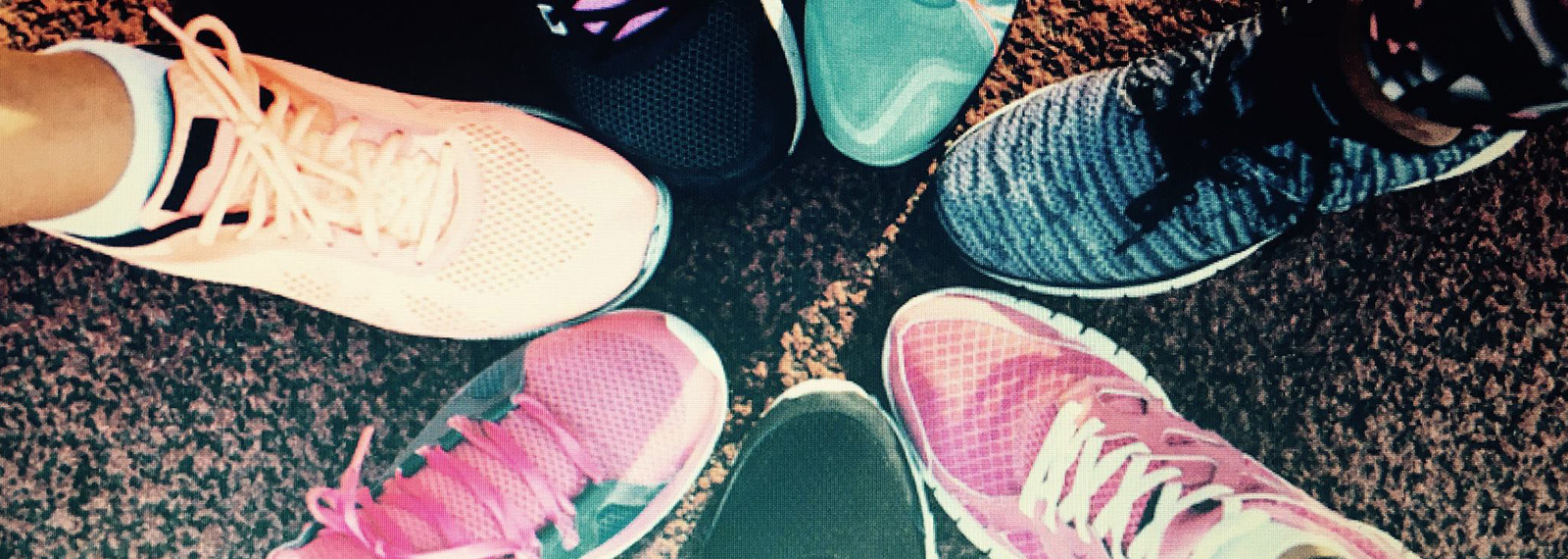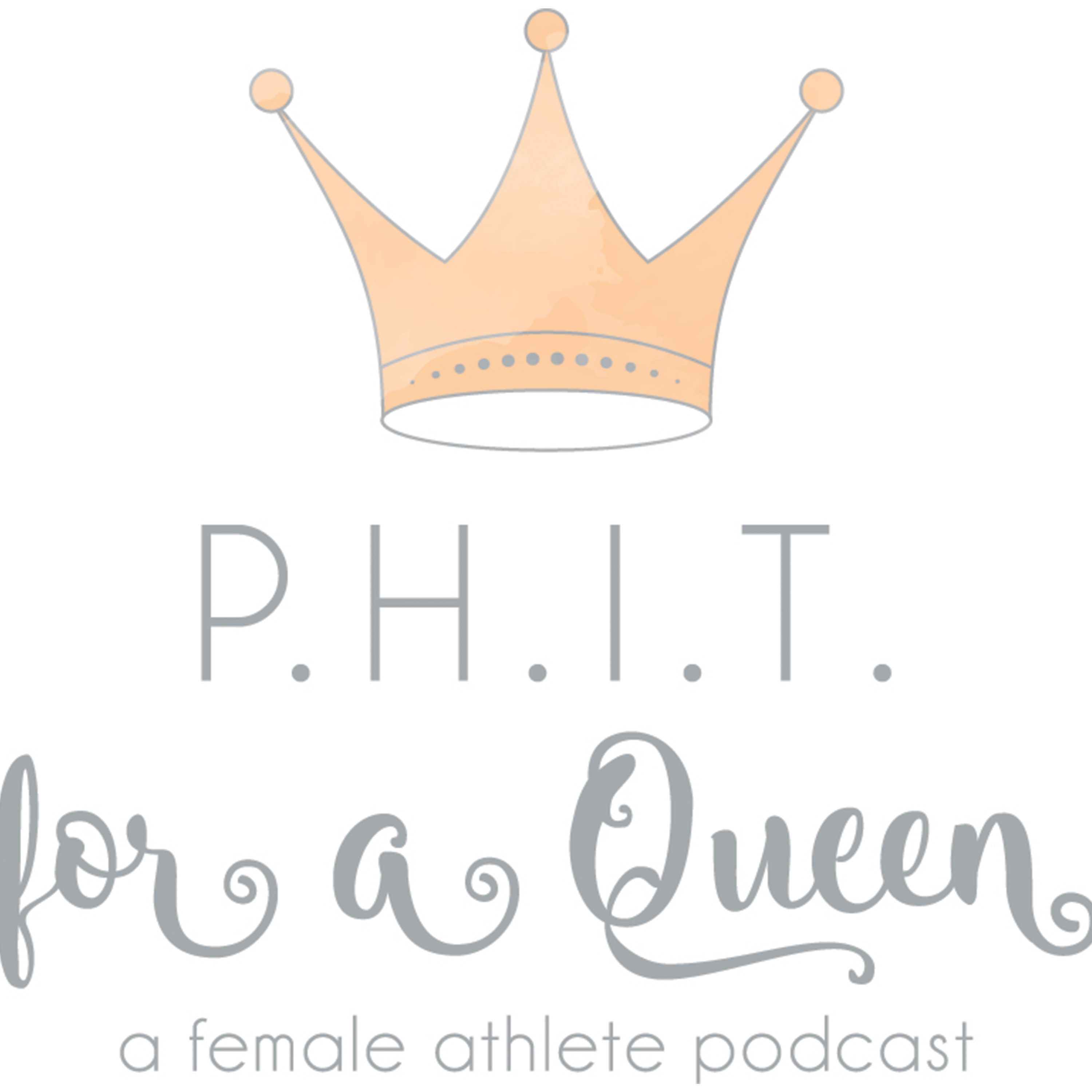Episodes

Friday Jun 19, 2020
Lia Nees discusses hypnosis for Athletes
Friday Jun 19, 2020
Friday Jun 19, 2020
Today we spoke with Lia Nees the founder of Cephalo Hypnosis and the creator of Hypnotic Athlete Accelerator an 8-week hypnotic female coaching program for athletes.
Lia says "I know what it’s like to feel like your mind is working against you, keeping you from reaching your goals."
I was struggling to reach my goals. I couldn’t get out of my rut. I couldn’t get past my own fear and anxieties. The smallest hitch would derail me. I felt stuck and overwhelmed watching everyone else around me thrive. I tried using willpower but eventually, willpower always runs out.
So I set off on a mission to learn about how the mind works. I wanted to understand why our mind seems to work against us, and how to get it to work with us.
In my search to master my mindset, I came across hypnosis. I learned the language of the subconscious and realized everything I had been doing wrong. From then on, I felt like I had a secret mental superpower! I rapidly surpassed every single one of my goals - all without using willpower... And everyone started asking how they could replicate the same results in THEIR lives too, most of whom were athletes.
So, I put together a program to teach my signature methodology that has allowed me to drastically change my life — all through hypnosis. That is how "Hypnotic Athlete Accelerator" was born!
My mission is to share my passion for hypnosis and its many benefits to improve people's lives the same way it improved mine.
So you know she's legit:
Lia Nees is an NGH Certified Hypnotist

Friday Jun 12, 2020
The Athletes Gut with Patrick Wilson PhD.
Friday Jun 12, 2020
Friday Jun 12, 2020
Today we talk with Patrick Wilson, author of the Athletes Gut: The Inside Science of Digestion, Nutrition, and Stomach Distress. The Athlete’s Gut makes sense of the complicated gastrointestinal tract and offers solutions to the tummy troubles that keep athletes from enjoying and excelling in their sport.
Questions We Tackle:
- Why Dr. Wilson wanted to focus his work on the athlete's gut. The majority of endurance athletes suffer from some kind of gut problem during training and competition. Symptoms like nausea, cramping, bloating, side stitches, and the need to defecate can negatively impact an athlete’s performance.
- The topic is discussed more and a topic of interest is it because there are more gut problems that athletes are experiencing than in years past?
- Wilson shares with us his top 5 tips for managing gut issues.
- What should an athlete use? We tackle what is better- formulated products vs a more whole-food approach.
So You Know He’s Legit:
Patrick Wilson is an associate professor of exercise science and directs the Human Performance Laboratory at Old Dominion University. He earned a Ph.D. in exercise physiology from the University of Minnesota and completed post-doctoral training in sports nutrition at the University of Nebraska-Lincoln. Wilson has authored over 45 scientific articles that span the disciplines of exercise science, sports nutrition, and health. He is the author of the recently released book, The Athlete's Gut: The Inside Science of Digestion, Nutrition, and Stomach Distress. Wilson is also a credentialed registered dietitian.

Friday Jun 05, 2020
Go-to resource for endurance and adventure enthusiasts. GritLink
Friday Jun 05, 2020
Friday Jun 05, 2020

Our Mission - To be the go-to resource for endurance and adventure enthusiasts for finding health care and knowledge that uniquely speaks to their training lifestyle and gritty mindset.
Cortney Jacobsen has held product leadership positions at Amazon, Brightcove, and Disney. Her undergraduate majors of Classical Piano and Electrical Engineering speak to her mission to balance creativity and logic and found that a career in product management suited this quest well. She fell in love with the outdoor life when she moved to Seattle in 1998. In 2015, she started Northwest Energy Lab, a coaching service for endurance athletes. She is excited to reach more active and adventurous people through building GritLink.
Joan Studley has worked at Microsoft, aQuantive, and CDK Global, and ultimately discovered skill and passion for product management. She has an underlying personal belief that we should constantly pursue knowledge and discovery, and we create a more enriched community by sharing with others. She has participated in endurance sports for years, primarily cycling and running, which help her decompress while exploring nature. She is excited to combine her interests in connecting people and information with outdoor endurance activities thru GritLink.
- We believe that active people are happy people. And happy people are healthy people.
- We believe that both outdoors and activity are keys to longevity.
- We believe it is important to help endurance athletes and adventurers stay active as much and as often as possible.

Friday May 29, 2020
Psychological Strength with Peak Mind
Friday May 29, 2020
Friday May 29, 2020

Ashley and April founded Peak Mind: The Center for Psychological Strength in 2019. Their mission is to make information, tools, and techniques from the fields of Psychology and Life Design easily accessible so that everyone who wants to can THRIVE!

April Seifert, Ph.D.
I'm thrilled to be part of Peak Mind because I know first-hand how powerful the fields of Psychology and Design Thinking can be in helping people make the most of the one life they're going to live. You see, everyone has been given the same gift of one life. Few people, however, actively participate in it.

Ashley Smith, Ph.D.
I am passionate about sharing the principles and practices of CBT, applied neuroscience, and positive psychology beyond the walls of my office. While stress and heartache are unavoidable parts of life, I wholeheartedly believe that we always have some choice and some control over things that can maximize our happiness...MINDSET MATTERS!
-
Our brains are powerful but they are not sophisticated and when you know the short cuts that they take, the glitches and the biases in the way that they process information you then have choices.
-
We’d like to help you understand how your mind works so that you can build strength; flexibility, endurance, and stamina a lot like you can when you understand your body.
- Psychological strength can give you the tools you need to navigate uncertainty in healthy ways.
During Covid19 we're offering free workshops.
We want to help. Click the link below to get started now.
https://www.peakmindpsychology.com/starter-pack
So you know they're legit:
April Seifert, Ph.D., is a social cognitive psychologist, life design strategist, and serial entrepreneur. She is also an endurance athlete and a certified skydiver. She is passionate about helping women make the most out of their one life by creating a full and vibrant life experience.
Ashley Smith, Ph.D., is a licensed clinical psychologist and entrepreneur who specializes in anxiety and related conditions. She blends cognitive-behavioral therapy, positive psychology practices, and applied neuroscience to help others live happy, fulfilling lives.

Friday May 22, 2020
Adrien Paczosa - Live For the Health of Your Body
Friday May 22, 2020
Friday May 22, 2020
Adrien Paczosa is a Registered and Licensed Dietitian practicing in Austin, Texas, and the surrounding counties. She is the founder of I Live Well Nutrition as well as being the founder of Fearless Practitioners, the division of her business that offers training to dietitians and wellness professionals.
Adrien began her path towards nutrition by falling down. She has been dancing since age 2 and in college was a Kilgore College Rangerette. During practice she took a fall and broke her foot, and that sparked the ideas of needing a new direction in her life. After graduating in 2003 from the University of Illinois – Chicago with a bachelor of science degree in Human Nutrition, Adrien began her career as a staff dietitian at a hospital in downtown Chicago. She was promoted to the hospital’s Director of Food Service and Nutrition and was responsible for all food preparation as well as patient nutritional care.
While working at her clinical job, Adrien maintained her passion for movement by working as a personal trainer and nutrition coach in downtown Chicago. In 2006, Adrien returned to Texas to be close to family, friends, and warmer weather! She opened her private practice, I Live Well Nutritional Therapy in 2007 to Create better access to dietitians.
Check out Adrien and I Live Well Nutrition
So you know Adrien's legit:
Adrien is a Certified Eating Disorders Registered Dietitian (CEDRD). Adrien has been active in the local, state, and national dietetic association volunteering and holding board positions. She is currently the Texas Academy of Nutrition and Dietetics Media Representative, which has allowed her to educate more Texans on the power of food. Becoming a board member and now the current chair-elect of Behavioral Health Nutrition (BHN) Dietetic Practice group has been a gift and honor to Adrien, and she continues to believe and strive to hold the bar set by BHN members to the highest degree of professional expectations.

Friday Apr 17, 2020
We are disconnected from ourselves.
Friday Apr 17, 2020
Friday Apr 17, 2020
Jason Belz shares on PHIT for a Queen that we are disconnected from ourselves. We do anything to take us away from being present. His goal is to get people to reconnect with their bodies.
Environmentally, we aren’t connected to our bodies. There’s so much stimulus going on outside our bodies all day long, and in this technology age, we sit all day – working from computers or phones or sitting in school. We are a car city, so we aren’t even walking places or walking to the subway. People have lost this connection to their bodies; how it can move and should move. So that’s my mission – to get people to understand how to move better.
I don’t believe you’re going to be consistent with anything that’s tied to negativity. You can force your head under the water for a while, but eventually, you’re going to come up to breathe.
I’m not going to weigh people and congratulate them on their weight loss. I’m not willing to have those conversations in my gym. It’s about movement and about connecting to your body and having a better understanding of what it can do if you challenge it and pay attention to it.
I like to teach people how to breathe and how that breath can be used to create tension and stability that they can then carry into their resistance training. They can then move more load because they are able to brace and resist force more, and that carries over into their dynamic work.
Females are such an underserved population in every way. With soccer in general, the numbers show the rate of ACL tears being 4-8 times greater with females than with males. This isn’t happening during hard tackles; it’s happening during non-contact plays.
When they are younger, girls aren’t encouraged to go in and lift weights and train. By not getting under a bar, they are not learning how to decelerate load (which is what happens when their body is coming down landing and kicking), and they are not strengthening their connective tissues. These girls are fast athletes on the fields and their muscles fire really fast. We haven’t given them the tools and the strength of connective tissue to keep up with the muscle fibers firing that way.
To prevent ACL injury, we also need to show female athletes ways to protect the knee. Knee stability isn’t in the knee – it comes from the ankle and the glutes and the hip.
Check out Jason and A Greater You, developing injury resilient, high-performance athletes: http://www.gr8ru.com/.
So you know Jason is legit –
Jason Belz is a trainer and gym owner at A Greater You (AGY) in Lenexa, Kansas. AGY specializes in group training, creating a sense of community as they focus on attainable and maintainable transformation. Jason believes results are seen in many forms: increased mobility, ease of daily activity, better sleep, growing confidence, strength gain, fat loss, etc.

Friday Apr 03, 2020
Friday Apr 03, 2020

Marisa Michael shares on PHIT for a Queen that some rock-climbing communities are starting to emerge that are focused on body positivity. In these communities, rock climbers are speaking out that you don’t need to be thin to climb. If you have a body, you can climb.
If you look at rock climbers on social media or in climbing publications, there’s a lot of information about how to lose weight and a lot of information encouraging weight loss to be a better climber. But the research on anthropometrics and climbing ability doesn’t support this. All the research we have says that no, you don’t need to lose weight to be a better climber.
I love seeing the rock-climbing community come together to encourage rethinking long-held beliefs about weight. They are saying you don’t have to be thinner to climb better, and unnecessary weight loss is actually detrimental and has not been helpful for your body or for your sport.
The more elite rock climbers get, the more eating disorder patterns they have. There is more pressure for them to perform well. They want sponsors, so they have to do well and compete well. If they think they need to be lighter to do this, they are going to do it.
For me, there’s not always a balance between my work, my family and myself. I have things take over, but it’s purposeful. I’m mindful of how I spend my time, and a time commitment has to be something that helps my business, my family or my self-care.
Check out Marisa and Real Nutrition LLC, offering personalized nutrition coaching: https://www.realnutritionllc.com/. Marisa offers rock-climbing courses on her web site that include information on how to eat before, during and after climbing for all levels of climbers – from indoor climbing to competitions and outdoor climbing.
So you know Marisa is legit –
Marisa Michael is a registered dietitian, Board Certified Specialist in Sports Dietetics and certified personal trainer. She owns Real Nutrition LLC, a private practice in Portland, Oregon. She holds a master’s degree in sports nutrition and the International Olympic Committee’s Diploma in Sports Nutrition. Marisa loves triathlons and rock climbing. She firmly believes that food brings joy and a good relationship with food is important to both mental and physical health.

Friday Mar 27, 2020
You’ve got to give your body a chance to talk back to you.
Friday Mar 27, 2020
Friday Mar 27, 2020
Tammy Beasley shares on PHIT for a Queen that you’ve got to give your body a chance to talk back to you. You really can learn to hear it, and your body can learn to trust you. But, it’s mutual trust, and both have responsibility.

When you have an eating disorder, there’s shame and darkness; a secret. The eating disorder has the power when you hide it – it’s a secret in a black hole. But when you expose it to the light – to relationships and to seeking health – it can’t survive. That’s the beginning of the end of the eating disorder.
As a society, we have never been so rigid and judgmental about our food. We are not giving ourselves any freedom to be an individual and listen to our own bodies. We have to follow this plan or do this and do that. We are a beautiful life, not machines. We can’t put in data and get out data. Calories in versus calories out isn’t a real thing. It doesn’t work that way.
We’ve pushed ourselves out of the driver’s seat completely with our relationship with body and food. Everything in our culture now is forcing us into the passenger’s seat, saying there’s only one way to eat. We are so opposite in our culture with food and body than we are in embracing diversity in any other way.
People sometimes think they have to micromanage everything about their bodies. The body is so much bigger and better than that. It’s really incredible how much the body gives to us. It takes the rigid things we give it and works to the best of its ability. Over time, however, micromanaging your body takes a toll. We need to get back to an intuitive place; realizing my body is not your body or anyone else’s body. And my body’s life story at this very moment is unique.
Trusting our body to communicate with us is a skill. It’s not easy, but it’s worth it. It’s putting yourself back in the driver’s seat.
It’s important to realize we are always growing as a person and growing in our own appreciation of what our body does for us. It’s a daily decision to say “this is good” to change. Change is different. It doesn’t mean it’s bad if it’s different; it’s just different.
Check out Tammy and Alsana, offering new hope for clients searching for recovery: https://www.alsana.com/
So you know Tammy is legit –
Tammy Beasley, RDN, CEDRD, CSSD, LD, is vice president of clinical nutrition services for Alsana. Tammy has devoted the majority of her 30+ years of experience as a registered dietitian to the field of eating disorders. Having recovered from an eating disorder herself, Tammy is passionate about sharing hope in recovery and is known for her innovative counseling techniques that help clients restore a nurturing relationship with both food and body.

Friday Mar 20, 2020
We are Made to Move: Exercise and Eating Disorder Recovery
Friday Mar 20, 2020
Friday Mar 20, 2020
We are Made to Move: Exercise and Eating Disorder Recovery
Join us as we speak to Dr. Brian Cook, whose research focuses on the etiological role and therapeutic potential of exercise in eating disorders. We look at the benefit of addressing exercise in eating disorder treatment and treatment tools that can be used.
- We don’t have an upper limit to how much we exercise but should there be one? With eating disorders, this is probably a good point to address.
- Cook believes we must address exercise in treatment just like we do food. We have a professional and ethical obligation to help discern all of the issues that surround exercise and eating disorder treatment. Our bodies are built to move.
- Intervening on the compulsive aspect of exercise to be able to unlock the potential the benefit of exercise without disordered behavior.
- We do know that we can use exercise appropriately in treatment to strengthen the body and also the brain and how the brain connects to the body.
You Know He’s Legit
Dr. Cook’s research focuses on the etiological role and therapeutic potential of exercise in eating disorders. His education at the Universities of Rhode Island and Florida and an NIMH funded postdoctoral fellowship provided training under experts in the eating disorders field. He has consistently presented research at international level conferences – including a keynote address at the International Association of Eating Disorders Professionals conference in 2017, published in leading journals, and written several invited book chapters. These accomplishments provide strong evidence of his passion for improving the lives of individuals and his potential for continued impact in the field of eating disorders. He has translated this research into clinical practice in his role as V.P of Movement, Research, and Outcomes at Alsana Eating Disorder Treatment & Eating Recovery Centers.
To find out more about Dr. Cook’s work and the treatment at Alsana Eating Disorder and Treatment Centers Go To:

Friday Mar 13, 2020
Friday Mar 13, 2020
Pappas shares on PHIT for a Queen that preventing injury in young female athletes comes down to recovery. Humans are able to adapt to about anything if provided enough recovery for the training modality.
We have not really portrayed female athletes in science the way we should. The research is far behind in understanding the menstrual cycle and in claiming that certain hormones cause injuries.

The majority of young female athletes have menstrual cycle irregularity, primarily related to energy availability. Studies are beginning to show a relationship between those irregularities and soft tissue injuries.
In an overuse injury, we are chronically exposing the tissue to more force than it’s able to handle or recover from. We need to increase the strength of muscles, tendons, and ligaments and also learn to move our bodies in coordination so more muscle fibers within a muscle or more muscles, in general, are working together to absorb these forces.
Strength training must progressively overload and then allow for recovery.
Strength training is so important for any female athlete, regardless of whether she has any type of “predisposed risk” to injury or not.
There is no adaptation without recovery.
Some of the best athletes in the world are training hours and hours a week, but they are improving because they are notching that hard work with the appropriate recovery.
In a culture that says, “Don’t sleep, work hard, head down,” I like to say, “Work hard, but also work smart.”
Check out Emily and Relentless Athletics: https://www.relentlessathleticsllc.com/
So you know Emily is legit –
Emily Pappas is the founder of Relentless Athletics in Hatfield, Penn. She has a Master of Science degree in educational physiology and is an adjunct at Temple University, instructing a course on the development of female athletes. Emily has experience coaching and programming at the Division I collegiate level, working as an assistant strength coach for an internship with Temple University’s women’s rugby team. Emily holds her USAW Sport Performance certification. Her company specializes in female athlete development through strength training, sports nutrition, and sports injury rehabilitation.














